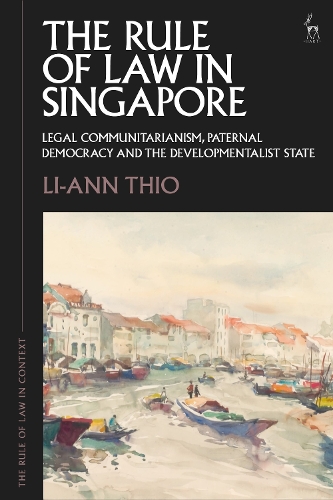
The Rule of Law in Singapore: Legal Communitarianism, Paternal Democracy and the Developmentalist State
(Hardback)
Publishing Details
The Rule of Law in Singapore: Legal Communitarianism, Paternal Democracy and the Developmentalist State
By (Author) Li-ann Thio
Bloomsbury Publishing PLC
Hart Publishing
9th January 2025
United Kingdom
Classifications
Tertiary Education
Non Fiction
Comparative law
340.11
Physical Properties
Hardback
264
Width 160mm, Height 236mm, Spine 20mm
555g
Description
This book examines the operation of the rule of law in the non-liberal democracy of Singapore. The rule of law in Singapore has been both lauded for anchoring efficient and effective government and lambasted for being procedural and statist. 21st-Century Singapore has experienced modest political liberalisation, manifesting a paternal democracy where the governor-governed relationship is evolving, from a father knows best paternalistic mindset to a more consultative approach to governance, where dialogue rather than diktat is the norm in a post-deferential era. The Singapore case study helps pluralise the rule of law as a universal principle which moderates power, and may be variously implemented. The book examines the reception of the rule of law within the Singapore legal order, and how it interacts with constitutional principles like the separation of powers and democracy in the design of constitutional institutions and forging of structural and rights-oriented judicial review. It considers how the rule of law, contoured by legal communitarianism, sustains a managed democracy in relation to legislation governing internal security, public assemblies, religious harmony and online falsehoods. It interrogates whether the chilling of political speech by strict laws on political defamation and contempt of court has been significantly defrosted by important developments which seek ordered liberty through a more calibrated form of review. Lucid and engaging, this book will be of interest to researchers working in constitutional law.
Author Bio
Li-ann Thio is Provost Chair Professor at the Faculty of Law, National University of Singapore.
